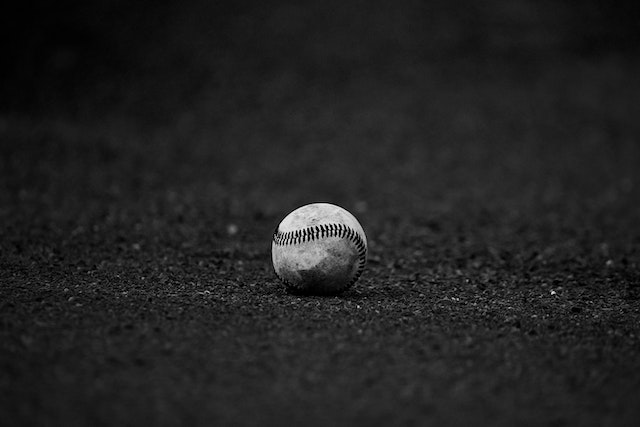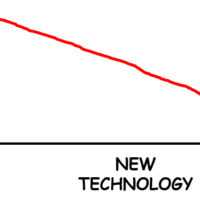

Why Baseball is a Dying Sport
Many.of the most vivid and cherished memories from my youth revolve around going to baseball games with my dad. We would park, probably illegally, in the Boston University residential neighborhood, and make our way over to Landsdowne Street where a host of New England characters (otherwise known as Massholes) would await us with colorful banter and sharp-witted colloquialisms about the Sox. The wafting aroma of peanut shells and spilled beer permeated the nostrils and beckoned us back time and time again with a pervasive sense of nostalgia no sport can rival. But all of that is dying now. Baseball is a sport in decline, and it shall not be long until it is relegated to being an archaic pastime that is literally past its time, a relic of a bygone era where people actually had the capacity to give a shit.
In 2022, 65 million people attended Major League Baseball games. Sounds pretty good, right? The problem is that those are the lowest numbers in over two decades. In fact, baseball attendance numbers have been steadily declining for years now since their peak in 2007. Coincidently, that was the same year the Apple iPhone was first released. Or perhaps that isn’t so much of a coincidence after all.
In the 16 years since the release of the iPhone, our attention spans have decreased dramatically. Research has shown that between 2000 and 2015, our attention spans shrank by a whopping 25% from 12 seconds in 2000 to 8.25 seconds in 2015. That’s just shy of the attention span of the common goldfish. And you don’t need to be a scientist to deduce the external factors that are contributing to the demise of our ability to focus- it lies in the ever-present, ever-distracting device that seems to be surgically implanted into our daily lives.
Baseball is not a game that moves quickly. It doesn’t provide the persistent and continuous dopamine fix that other spectator sports can. With a shot clock of 24 seconds, basketball is constantly churning out high drama impact plays. It’s a highlight reel waiting to happen. Hockey ebbs and flows with a dizzying pace, and while the scoring may be more sporadic, the pace is frenetic, and opportunities for scoring abound. Newer, less-traditional sports like the pantheon of Summer and Winter X-Games offer one rider or competitor after another, custom-designed for a younger generation who grew up with the perpetual entertainment provided by technology. And soccer….well, soccer is soccer and I’m just never going to get it.

But baseball tarries. It lingers and lolligags in the sweet summer heat, drawing out its plays like a Southern Belle with an overly-pronounced drawl. Baseball is cerebral, a meditative matching of wits, that requires of the viewer a subtle appreciation of the drama that is unfolding before them. Sure, you can just go out to the ball park and throw down a couple of cold ones in the sun, but to really understand the game, to really get it for all that it is, requires an almost Zen-like focus on the non-action occurring all around you.
The data backs this up. The average baseball game is 2 hours and 56 minutes, but of that nearly three hours, researchers have found that there is only an average of 17 minutes and 58 seconds of action. That’s just 10.21% action over the course of three hours! Holy Batboy, Batman, that’s a lot of spitting and standing around. Meanwhile, NBA games run around 2 hours 18 minutes with 48 minutes of live action for a 34.78% ratio. Hockey is over 40% action. And soccer is over 50%, even if it all sucks. Meanwhile, an average MLB broadcast now contains nearly 45 minutes of commercials, more than five times what they would have been in the 1950’s. In an era of ubiquitous diversions, baseball is just too slow to keep spectator’s attention. As baseball games are getting longer, our ability to pay attention is getting shorter, and that simply isn’t a sustainable model for viewership.
Sure, baseball is implementing a pitch clock this year in order to speed up the pace of play, but that’s just putting lipstick on a soccer player. It’s not going to fundamentally alter the nature of the game itself, and it shouldn’t. Baseball shouldn’t change the very temperament that makes it what it is just to accommodate our depressingly shrinking attention spans. Let it age gracefully, without pumping itself full of botox and fillers, and slowly fade into the oblivion of a dwindling niche audience. Yes, going forward baseball will struggle to attract a younger generation who just can’t be bothered with anything that takes longer than a TikTok video, but let it play itself out to an older contingent that still appreciates the nuances and intricacies that have defined the sport since its inception in the 19th century.
And with that, baseball will stand as yet another casualty in our ever-encroaching war against our own invention. As we literally watch our brains rot from the inside out, we can throw baseball onto the cultural trash heap upon which our society has waywardly tossed other once-fundamental relics, such as reading or theater or conversation. And in so doing we let technology rob us of yet another institution that once propped us up when we needed it most and served as the primary bonding point for many other fathers and sons.
Maybe then we will finally pay attention.
Steven Craig is the author of the best-selling novel WAITING FOR TODAY, as well as numerous published poems, short stories, and dramatic works. Read his blog TRUTH: In 1000 Words or Less every THURSDAY at www.waitingfortoday.com



